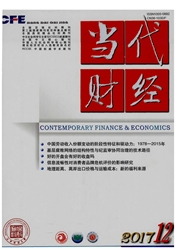

 中文摘要:
中文摘要:
本文认为会计准则的质量是决定会计信息质量(包括相关性)的必要而非充分条件,并侧重于从会计准则制定的视角解读会计信息的相关性。本文集中讨论了如下几个问题:(1)会计准则制定是一个公共选择过程的特点决定并导致了苛求会计的相关性的困境;(2)会计准则制定难以确保为所有的利益相关者提供完全相关的信息;(3)会计准则和通用财务报告模式存在着信息披露成本的不恰当转嫁;(4)借助“充分信息含量”概念,进一步分析了“信息披露日益增加,但使用者却认为相关性下降”的行为方面的原因;(5)本文提出了针对会计信息相关性提高的政策性建议。
 英文摘要:
英文摘要:
The paper holds the view that the quality of accounting standards is a necessary rather than a sufficient condition for the quality of accounting information (including relevancy), and stresses the importance of interpreting the accounting information from the angle of formulating the accounting standards. The paper elaborates on the following points in accounting: (1) That the formulation of the accounting standards is characterized by a process of public choice determines and gives rise to the stringent dilemma of the accounting relevance; (2) The formulation of the accounting standards can not guarantee the availability of completely relevant information required by the interest persons; (3) The accounting standards and general-purpose financial reporting model could result in improper information disclosure costs transferring; (4) The paper, by introducing the concept of sufficient information content, looks at the reasons and behavior factors behind the phenomenon that while there is an increase in information disclosure the information users feel relevance is on the decline; (5) The paper puts forward some policy suggestions.
 同期刊论文项目
同期刊论文项目
 同项目期刊论文
同项目期刊论文
 期刊信息
期刊信息
